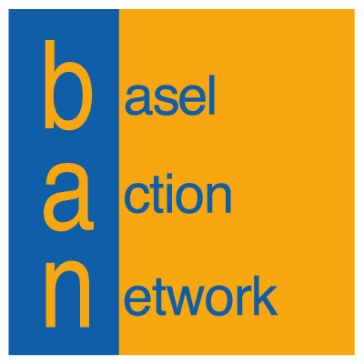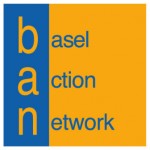Proposed Waste Regulation Violates Chile's Toxic Waste Trade Treaty Obligations
International and local NGOs call for changes to avoid open borders for toxic waste trafficking

The global environmental toxic trade watchdog organization Basel Action Network, together with two Chilean NGOs -- FIMA and the Terram Foundation -- have urged the government of Chile to fulfill its international commitments to end transboundary trafficking in hazardous wastes. As part of the public consultation of one of the regulations, the three environmental advocacy organizations are urging the government to respect its international commitments concerning the import and export of hazardous waste.
In a letter to the government, commenting on a proposed regulation to implement the new "Waste Management Framework Law, Extended Producer Responsibility and Recycling Promotion," the NGOs state:
"We are concerned that approval of the text of the new 'Regulation on the transboundary movement of waste', currently under a public consultation process by the Ministry of the Environment of Chile, will violate its international legal obligations stemming from Chile's ratifications of the Basel Convention, the Basel Ban Amendment and the Vienna Convention on the Law of Treaties. The lack of awareness in this new regulation of Chile's existing legal commitments could, unless amended, constitute a dangerous precedent that would undermine more than 20 years of global efforts, under the Basel Convention, to guarantee environmental justice and equity -- an effort in which Chile has played a vital role to date."
NGO leaders, Jim Puckett, Flavia Liberona and Ezio Costa note that Chile ratified the Basel Convention in August 1992 and, therefore, must fulfill its obligations and implement them in its domestic legislation. However, Article 8 of the Law in relation to Article 4 of the Regulation appears to violate Basel obligations even while citing them. In addition, articles 36 and 52 contradict Chile's obligations under the Basel Ban Amendment.
The Basel Ban Amendment, ratified by Chile in 2009 on the occasion of Chile's entry into the OECD, prohibits the export of hazardous waste from OECD or EU states to countries not belonging to the OECD or EU. Chile is now an OECD country and as such, should no longer export its hazardous waste to non-OECD or non-European Union countries for any reason. Although the Prohibition Amendment has not yet entered into global force, in accordance with the terms of the Vienna Convention on the Law of Treaties; Chile should not act to the detriment of the objectives of a treaty or instrument that it has ratified even before it enters into force.
It must be further understood that under the previous government, Chile was one of the states that worked diligently in the diplomatic effort known as the "Swiss-Indonesian Country-Led Initiative" (CLI), which led to a consensus, to promote the Ban Amendment's early entry into force. In doing so, the State of Chile demonstrated its full and continued support for the amendment it had previously ratified, as well as an understanding of the seriousness of an OECD country derogating from the agreement by creating an exception out of compliance with it on a national basis.
"We are very surprised to see that Articles 36 and 52 directly contradict the Basel Ban Amendment that Chile ratified and defended strongly," said Jim Puckett of BAN.
The NGOs call for Chilean law to remain consistent with treaty obligations.
"We hope that changes to the proposed text will lead to Chilean domestic legislation being aligned with the obligations of its treaties. Doing otherwise would set an alarming precedent and threaten international governance. We remain at the government's disposal to assist in efforts to amend the proposed Regulation so as to ensure international legal coherence."



